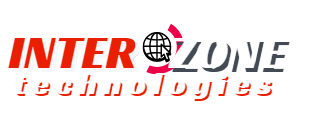Website SEO Audit Step by Step
Interzone Technologies provides you with a general outline of what a website SEO audit entails and offer some optimization suggestions based on common practices. If you want a detailed SEO audit for a specific website, I recommend using dedicated SEO tools or consulting with our SEO professionals. Here’s a general approach:
Website SEO Audit Steps:
- Technical Analysis:
- Check website loading speed.
- Ensure mobile responsiveness.
- Review site architecture and URL structure.
- Confirm proper indexing by search engines.
- Analyze XML sitemap and robots.txt file.
- On-Page SEO:
- Analyze title tags, meta descriptions, and header tags for relevance and keyword usage.
- Check keyword optimization in content.
- Evaluate internal linking structure.
- Content Evaluation:
- Review content quality and relevancy.
- Check for duplicate or thin content.
- Ensure content is well-structured with headings and subheadings.
- Analyze keyword usage and density.
- Backlink Profile:
- Evaluate the quality and relevance of incoming backlinks.
- Check for spammy or low-quality backlinks.
- Ensure a diverse range of anchor text.
- User Experience and Design:
- Evaluate website design and layout.
- Ensure easy navigation and clear calls-to-action.
- Analyze user engagement metrics (bounce rate, time on site).
- Local SEO (if applicable):
- Optimize Google My Business listing.
- Ensure consistent NAP (Name, Address, Phone) information across the web.
Optimization Suggestions:
- Keyword Optimization:
- Conduct thorough keyword research and incorporate relevant keywords in title tags, meta descriptions, and content.
- Avoid keyword stuffing; maintain natural and user-friendly content.
- Technical Improvements:
- Optimize website speed by compressing images, minimizing code, and leveraging browser caching.
- Ensure mobile responsiveness for a seamless experience across devices.
- Content Enhancement:
- Develop high-quality, informative, and engaging content that addresses user needs.
- Create a blog and update it regularly with valuable content related to your industry.
- On-Page Elements:
- Optimize title tags, meta descriptions, and header tags with target keywords.
- Utilize descriptive and compelling meta descriptions to improve click-through rates.
- Backlink Building:
- Focus on building high-quality, authoritative backlinks from relevant sources.
- Avoid low-quality link-building practices that may lead to penalties.
- User Experience:
- Improve website design, layout, and navigation for a user-friendly experience.
- Implement clear calls-to-action to guide users toward desired actions.
- Local SEO (if applicable):
- Ensure accurate and consistent business information across online directories and platforms.
- Monitoring and Analytics:
- Set up Google Analytics and Google Search Console to monitor performance and identify areas for improvement.
Keep in mind that every website is unique, and the optimization strategies will vary based on your specific goals and target audience. It’s recommended to work with our experienced SEO professional agency to conduct a comprehensive audit and implement effective optimization strategies.

